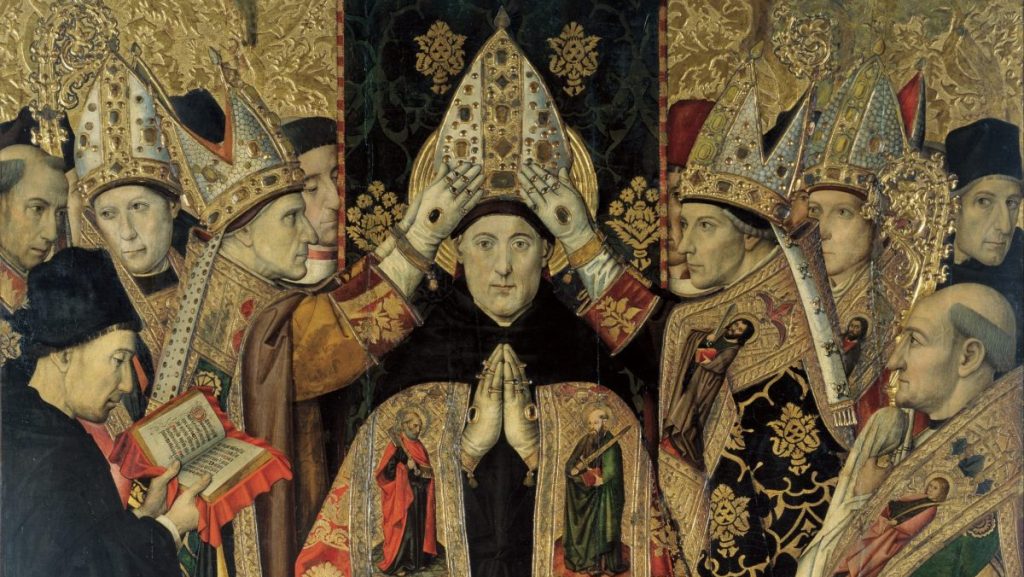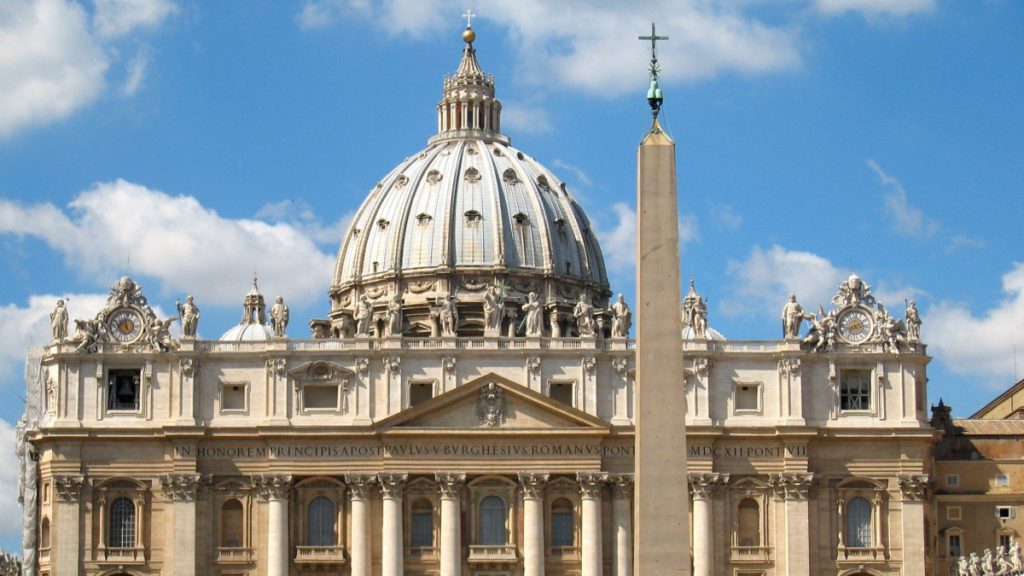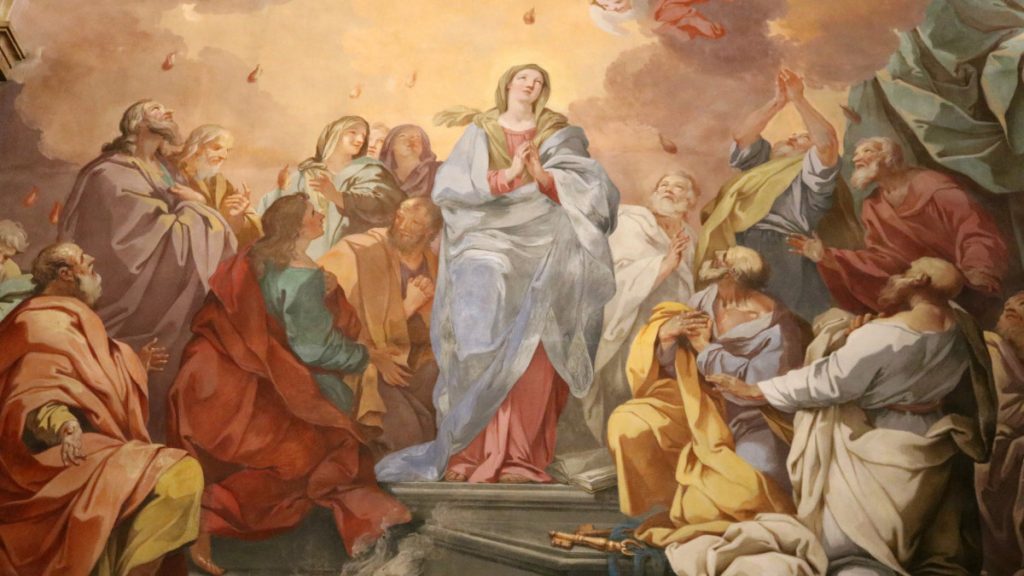(Updated March 24, 2025)
Editor’s Introduction
Great Tradition Treasury Summary
In an effort to make the writings of the Church Fathers more available and accessible, Eternal Christendom is in the process of creating a “Great Tradition Treasury,” which will modernize and make as many writings of the Great Tradition available in the public domain. A prominent part of this Treasury will be a new collection of the writings of the Fathers whose translations into English are in the public domain, most from the 19th century. While they have much to commend them, they stand in need of improvement in order to be more accessible to a 21st century audience.
With that in mind, the Great Tradition Treasury will edit and refine these translations in the following ways:
- Modernize Spelling | Update the spelling of certain archaic English words (i.e. “thee,” “thou,” “hath,” various plural words ending in “eth,” etc.).
- Standardize Scripture Citations | Standardize and correct the citations to Scripture, and placing them in the body of the text, so that alternating between text and footnotes is kept to a minimum. Every direct quote of Scripture will be followed by a parenthetical, and every allusion to it will be followed by a bracketed citation, each linked to the RSVCE.
- Optimize Headings | Improve the 19th century editor-provided headings, which are often too wordy or imprecise.
- Alternative Renderings | Place alternative renderings of phrases provided by the translators next to the translated text in [bolded, bracketed font], so that the alternative can be seen within the text (rather than a footnote), but also clearly distinguished from it. Literal renderings will be displayed [literal: “quote”]. Alternative renderings will be displayed [or, “quote”].
- Hyperlinked Cross-Referencing | Whenever possible, hyperlink to publicly available versions of the works cited, whether Scripture or otherwise.
- Correct Mistakes | Fix typos, misspellings, and incorrect citations to Scripture and other sources.
Document Information
- Author/Title/Source | St. Ignatius of Antioch, Letter to the Magnesians
- Date | c. 107
Author’s Introduction
Ignatius, who is also called Theophorus, to the [Church] blessed in the grace of God the Father, in Jesus Christ our Savior, in whom I salute the Church which is at Magnesia, near the Maeander, and wish it abundance of happiness in God the Father, and in Jesus Christ.
§1 | Reason for Writing
Having been informed of your godly [literally: “according to God”] love, so well-ordered, I rejoiced greatly, and determined to commune with you in the faith of Jesus Christ. For as one who has been thought worthy of the most honorable of all names [literally: “of the most God-becoming name,” referencing either “Theophorus,” “martyr,” or “confessor”], in those bonds which I bear about, I commend the Churches, in which I pray for a union both of the flesh and spirit of Jesus Christ, the constant source of our life, and of faith and love, to which nothing is to be preferred, but especially of Jesus and the Father, in whom, if we endure all the assaults of the prince of this world, and escape them, we shall enjoy God.
§2 | I Rejoice in Your Messengers
Since, then, I have had the privilege of seeing you, through Damas your most worthy bishop, and through your worthy presbyters Bassus and Apollonius, and through my fellow-servant the deacon Sotio, whose friendship may I ever enjoy, inasmuch as he is subject to the bishop as to the grace of God, and to the presbytery as to the law of Jesus Christ, [I now write1 to you].
§3 | Honor Your Young Bishop
Now it becomes you also not to treat your bishop too familiarly on account of his youth [literally: “to use the age of your bishop”], but to yield him all reverence, having respect to [literally: “according to”] the power of God the Father, as I have known even holy presbyters do, not judging rashly, from the manifest youthful appearance [literally: “youthful condition”] [of your bishop], but as being themselves prudent in God, submitting to him, or rather not to him, but to the Father of Jesus Christ, the bishop of us all. It is therefore fitting that you should, after no hypocritical fashion, obey [your bishop], in honor of Him who has willed us [so to do], since he that does not so deceives not [by such conduct] the bishop that is visible, but seeks to mock Him that is invisible. And all such conduct has reference not to man [literally: “to flesh”], but to God, who knows all secrets.
§4 | The Wicked Act Separately from the Bishop
It is fitting, then, not only to be called Christians, but to be so in reality: as some indeed give one the title of bishop, but do all things without him. Now such persons seem to me to be not possessed of a good conscience, seeing they are not steadfastly gathered together according to the commandment.
§5 | Those Separate from the Bishop Will Die
Seeing, then, all things have an end, these two things are simultaneously set before us—death and life; and everyone shall go to his own place. For as there are two kinds of coins, the one of God, the other of the world, and each of these has its special character stamped upon it, [so is it also here].2 The unbelieving are of this world; but the believing have, in love, the character of God the Father by Jesus Christ, by whom, if we are not in readiness to die into His passion [or, “after the likeness of His passion”], His life is not in us.
§6 | Preserve Harmony
Since therefore I have, in the persons before mentioned, beheld the whole multitude of you in faith and love, I exhort you to study to do all things with a divine harmony [literally: “in harmony of God”], while your bishop presides in the place of God, and your presbyters in the place of the assembly of the apostles, along with your deacons, who are most dear to me, and are entrusted with the ministry of Jesus Christ, who was with the Father before the beginning of time [literally: “before the ages”], and in the end was revealed. Do you all then, imitating the same divine conduct [literally: “receiving the like manners of God”], pay respect to one another, and let no one look upon his neighbor after the flesh, but do you continually love each other in Jesus Christ. Let nothing exist among you that may divide you; but be you united with your bishop, and those that preside over you, as a type and evidence of your immortality [doubtful meaning].
§7 | Do Nothing Without the Bishop and Priests
As therefore the Lord did nothing without the Father, being united to Him, neither by Himself nor by the apostles, so neither do you anything without the bishop and presbyters. Neither endeavor that anything appear reasonable and proper to yourselves apart; but being come together into the same place, let there be one prayer, one supplication, one mind, one hope, in love and in joy undefiled. There is one Jesus Christ, than whom nothing is more excellent. Do you therefore all run together as into one temple of God, as to one altar, as to one Jesus Christ, who came forth from one Father, and is with and has gone to one.
§8 | Caution Against False Doctrines
Be not deceived with strange doctrines, nor with old fables, which are unprofitable. For if we still live according to the Jewish law, we acknowledge that we have not received grace. For the most divine prophets lived according to Christ Jesus. On this account also they were persecuted, being inspired by His grace to fully convince the unbelieving that there is one God, who has manifested Himself by Jesus Christ His Son, who is His eternal Word, not proceeding forth from silence,3 and who in all things pleased Him that sent Him.
§9 | Let us Live with Christ
If, therefore, those who were brought up in the ancient order of things [literally: “in old things”] have come to the possession of a new [or, “newness of”] hope, no longer observing the Sabbath, but living in the observance [or, “according to”] of the Lord’s Day, on which also our life has sprung up again by Him and by His death—whom some deny, by which mystery we have obtained faith [literally: “we have received to believe”], and therefore endure, that we may be found the disciples of Jesus Christ, our only Master—how shall we be able to live apart from Him, whose disciples the prophets themselves in the Spirit did wait for Him as their Teacher? And therefore He whom they rightly waited for, being come, raised them from the dead [Matt. 27:52].
§10 | Beware of Judaizing
Let us not, therefore, be insensible to His kindness. For were He to reward us according to our works, we should cease to be. Therefore, having become His disciples, let us learn to live according to the principles of Christianity [literally: “according to Christianity”]. For whosoever is called by any other name besides this, is not of God. Lay aside, therefore, the evil, the old, the sour leaven, and be you changed into the new leaven, which is Jesus Christ. Be you salted in Him, lest anyone among you should be corrupted, since by your savor you shall be convicted. It is absurd to profess [or, “to name”] Christ Jesus, and to Judaize. For Christianity did not embrace [literally: “believe into”] Judaism, but Judaism Christianity, that so every tongue which believes might be gathered together to God.
§11 | I Write to Warn You
These things [I address to you], my beloved, not that I know any of you to be in such a state [i.e., addicted to Judaizing]; but, as less than any of you, I desire to guard you beforehand, that you fall not upon the hooks of vain doctrine, but that you attain to full assurance in regard to the birth, and passion, and resurrection which took place in the time of the government of Pontius Pilate, being truly and certainly accomplished by Jesus Christ, who is our hope [1 Tim. 1:1], from which may none of you ever be turned aside.
§12 | Praise of the Magnesians’ Humility
May I enjoy you in all respects, if indeed I be worthy! For though I am bound, I am not worthy to be compared to any of you that are at liberty. I know that you are not puffed up, for you have Jesus Christ in yourselves. And all the more when I commend you, I know that you cherish modesty [literally: “are reverent”] of spirit; as it is written, “The righteous man is his own accuser” (Prov. 18:17, LXX).
§13 | Be Established in Faith and Unity
Study, therefore, to be established in the doctrines of the Lord and the apostles, that so all things, whatsoever you do, may prosper both in the flesh and spirit; in faith and love; in the Son, and in the Father, and in the Spirit; in the beginning and in the end; with your most admirable bishop, and the well-compacted spiritual crown of your presbytery, and the deacons who are according to God. Be you subject to the bishop, and to one another, as Jesus Christ to the Father, according to the flesh, and the apostles to Christ, and to the Father, and to the Spirit; that so there may be a union both fleshly and spiritual.
§14 | Request for Prayers
Knowing as I do that you are full of God, I have but briefly exhorted you. Be mindful of me in your prayers, that I may attain to God; and of the Church which is in Syria, from which I am not worthy to derive my name: for I stand in need of your united prayer in God, and your love, that the Church which is in Syria may be deemed worthy of being refreshed [literally: “of being sprinkled with dew”] by your Church.
§15 | Salutations
The Ephesians from Smyrna (from where I also write to you), who are here for the glory of God, as you also are, who have in all things refreshed me, salute you, along with Polycarp, the bishop of the Smyrnaeans. The rest of the Churches, in honor of Jesus Christ, also salute you. Fare you well in the harmony of God, you who have obtained the inseparable Spirit, who is Jesus Christ.
Footnotes
- The apodosis is here wanting in the original, but must evidently be supplied in some such way as above. ↩︎
- The apodosis is wanting in the original, and some prefer finding it in the following sentence. ↩︎
- Some have argued that the Gnostic Σιγή, silence, is here referred to, and have consequently inferred that this epistle could not have been written by Ignatius. ↩︎







